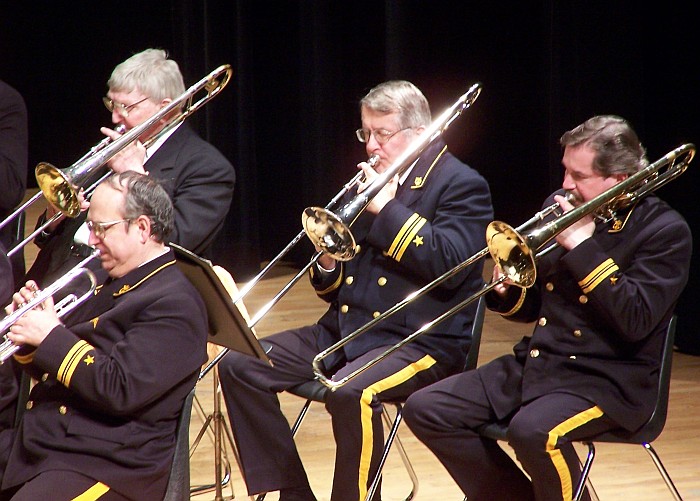The 2005 Indoor Concert Series
2005 Karl L. King Band Municipal Band of Fort Dodge, Iowa
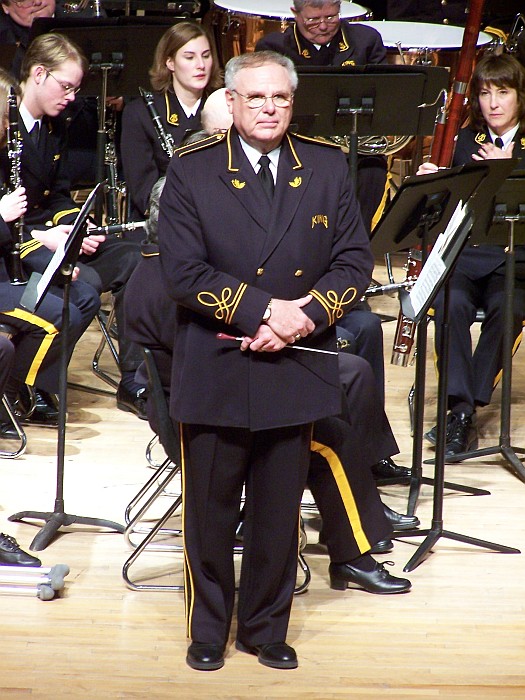
The 2005 Indoor Concert Series
2005 Karl L. King Band Municipal Band of Fort Dodge, Iowa

The February Concert had a two-fold theme, with the first being to recognize the music of the band’s namesake, Karl L. King. The music to be performed reflects a wide range of King’s musical styles, and was heavily influenced by his career as a circus musician. The second part of the concert will include music depicting the Southeast Asia area, which has been selected as Iowa Central Community College’s cultural emphasis this year.
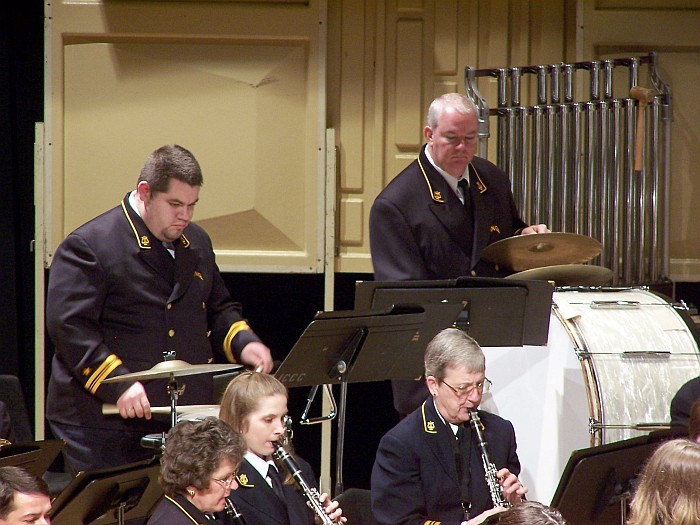
This concert opened on an interesting note. The first march, Salute to the Sultan – a March Orientale - was written by King and published in 1912 when he was only 21 years of age. However, it is one of only a few selections published by the J. E. Agnew Publishing Company of Kansas City, Missouri, under a nom de plume created by King himself. Mr. King took his name, Karl Lawrence King, and by changing the spelling of his first name to Carl, using his full middle name, and omitting his last name, he created the fictitious name of Carl Lawrence. A total of 5 marches, 2 overtures, 2 intermezzos, and one waltz were published under this assumed name, with the most famous of these being Salute To The Sultan, which King dedicated to his “friend Theo. Stout, bandmaster”.
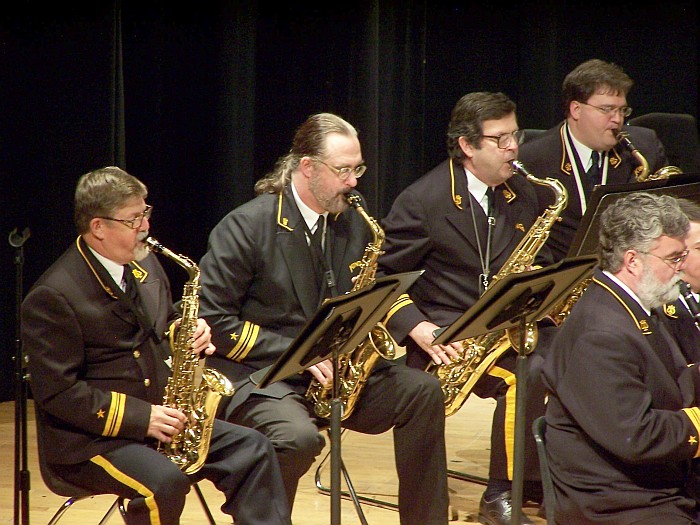
Other marches by King on this concert included The Attorney General, published in 1921 at age 30, dedicated to the Attorney General of Ohio (King’s home state), and the first song published by his newly formed publishing company in Fort Dodge; Valiant Youth, which King published in 1925 at age 34 and dedicated to his only child, Karl junior; and Diamond Jubilee, published in 1961 at age 70. This final march was a composite of excerpts from seven of King’s most famous marches, and commemorated the 75th anniversary of the C. L. Barnhouse Publishing Company in Oskaloosa, Ia., the firm that put many of King’s songs in print and sold them worldwide.
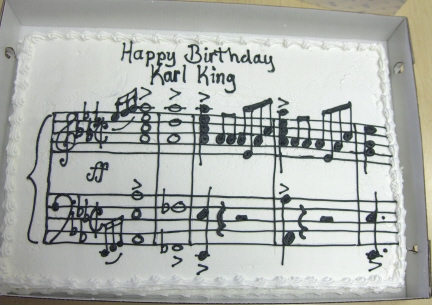
Andrew Glover (of Barnhouse Publishing) says:
I always make a big deal at the office for KLK's birthday. Each year, I get a big cake, all decorated for our employees to enjoy. If it weren't for C. L. Barnhouse and Karl King, we wouldn't be in business - so it's important that we remember them; hence, KLK's birthday is a day of celebration for us.
Other circus music by King heard on this program were Ragged Rozey, published in 1913, when King was age 22, and reflecting the style of Ragtime, a popular form of music at that time; and Circus Days Galop, published in 1944 when King was 53, and was considered one of his best galops.
Generally considered the finest overture King ever wrote was The Golden Dragon, which, in spite of its oriental sound, was really named after a famous circus wagon used in parades whenever the circus came to town. This overture was one of King’s best-selling compositions and was widely performed by the finest bands in the nation. It was published in 1927, when he was 36 years of age. Also on this concert was one of King’s classic aerial waltzes, written for the high-flying trapeze artists in the circus. Featured was Mystic Night, which was published in 1931 when King was 40 years old.
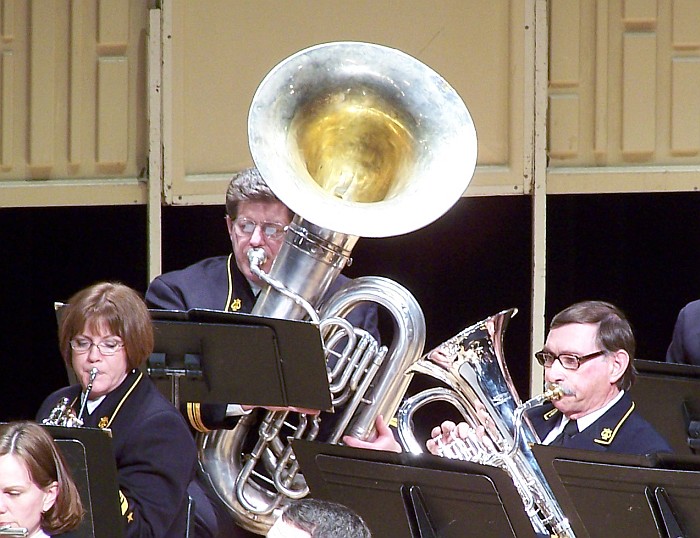
In addition to the compositions of Karl L. King, the band also saluted the cultures of the Southeast Asia regions. They performed three selections reminiscent of this part of our world. First was the Cambodian Suite, a collection of three short songs composed by then King of Cambodia, His Majesty King Norodom Sihanouk. These pieces were scored for band by Robert Cray, and premiered by the United States Air Force Band during the 1950’s. Next was the English march Colonel Bogey, a very familiar melody written in 1914 by Kenneth J. Alford, and used in the movie The Bridge Over The River Kwai, which was set in Burma. Finally, highlights from the successful Broadway musical, The King and I, written by Richard Rodgers and Oscar Hammerstein II, was heard. The setting for this musical is in the country of Siam, and depicts the trials of Anna, an English schoolteacher, who comes to teach the King’s children, but really finds more challenges than she expected.
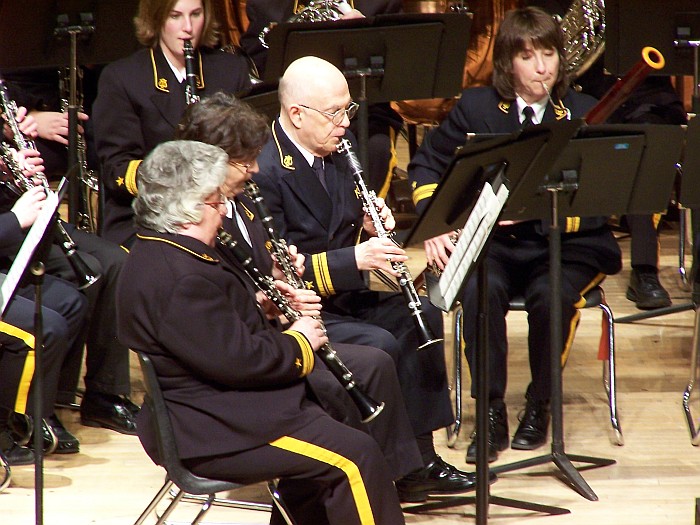
The concert concluded with the playing of our National Anthem, The Star-spangled Banner.
March 20
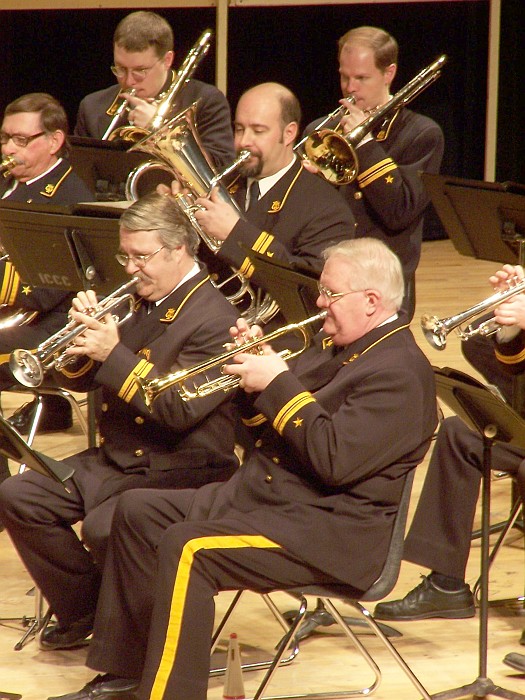
The second concert this season was the traditional Irish Concert, in celebration of St. Patrick’s Day. Many familiar Irish songs were performed, including everyone’s favorite, McNamara’s Band, as arranged by former conductor Reginald R. Schive. Other Irish selections on the program were Strains from Erin as arranged by Cailliet and An Irish Suite for Band by Spinney.Several march selections were performed, including McKinley’s Own, and Spirit of Minstrelsy by Karl King, Hands Across The Sea by Sousa, and Boys of the Old Brigade by Chambers. Popular selections included Harrigan by Cohan, and Leroy Anderson’s The Minstrel Boy from his Irish Suite.
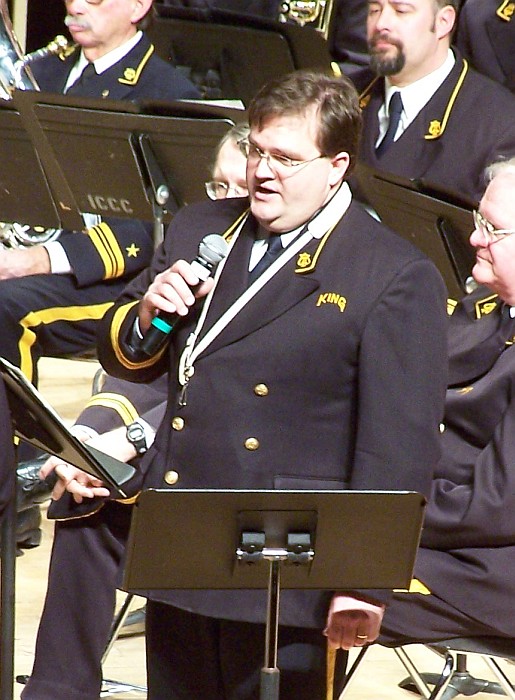
Roger Netz, from Manson led the audience in a sing-along of the traditional Irish favorites, When Irish Eyes Are Smiling and My Wild Irish Rose. Mr. Netz is a member of the Saxophone section in the band, and is also the Vocal Music instructor at the Manson Northwest Webster Schools.
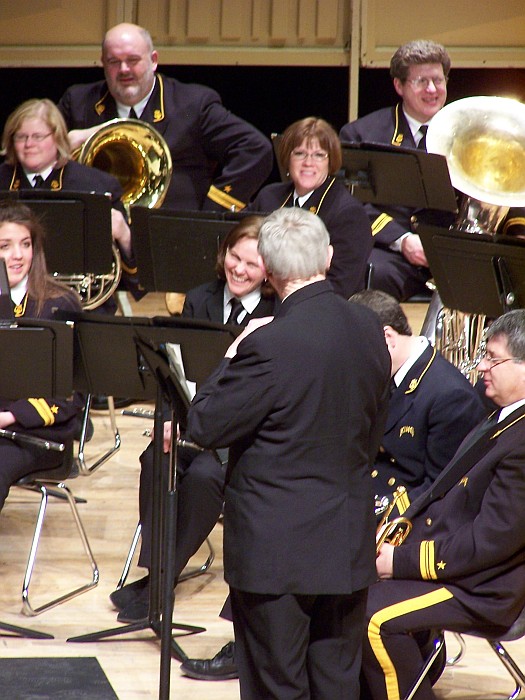
Karl Killinger is shown addressing the band before conducting.
Karl Killinger, director of the Iowa Veterans Band, was a special guest for this program, performing trombone with the band and conducting Fred Jewell's Quality Plus. Mr. Killinger is a former member of the Karl L. King Munincipal Band of Fort Dodge. He played under Karl King beginning in 1939 and was the band's baritone soloist.
If you have broadband internet service,
you may wish to these download video excerpts of Quality Plus.
Excerpt 1 (.mov format - 3 MB)
Excerpt 2 (.mov format - 17 MB)
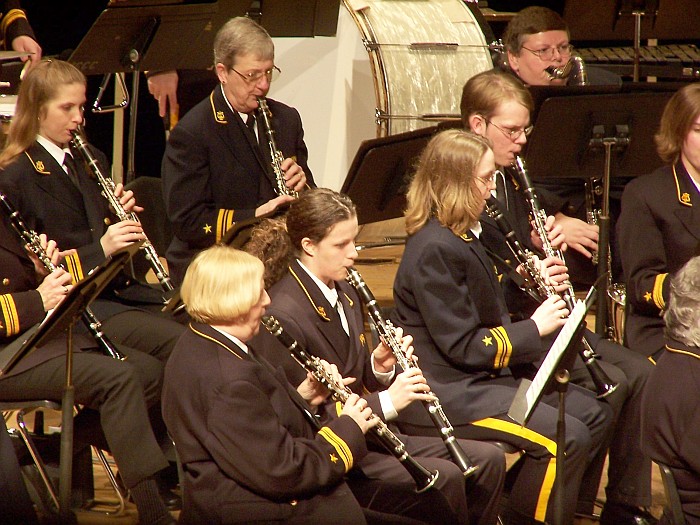
The concert finished with the playing of our National Anthem, The Star-spangled Banner.
